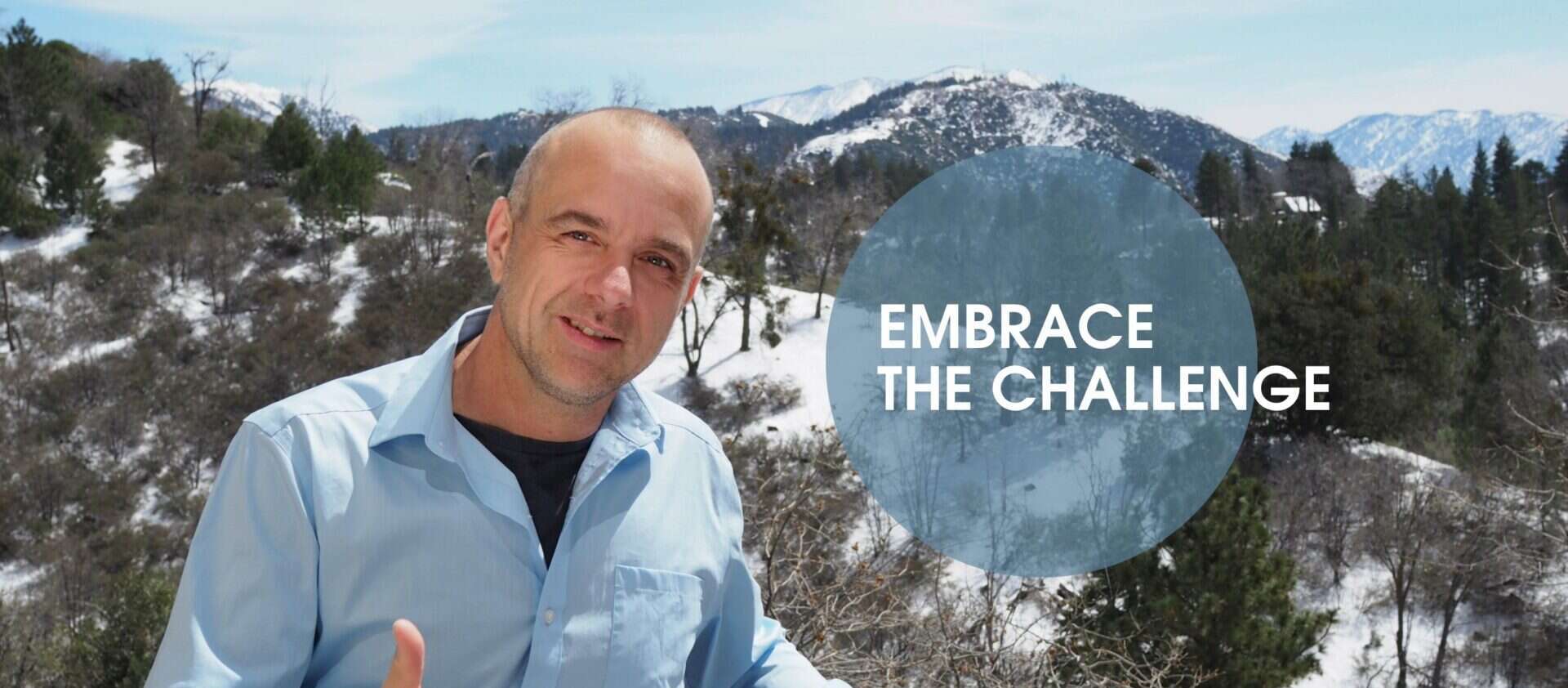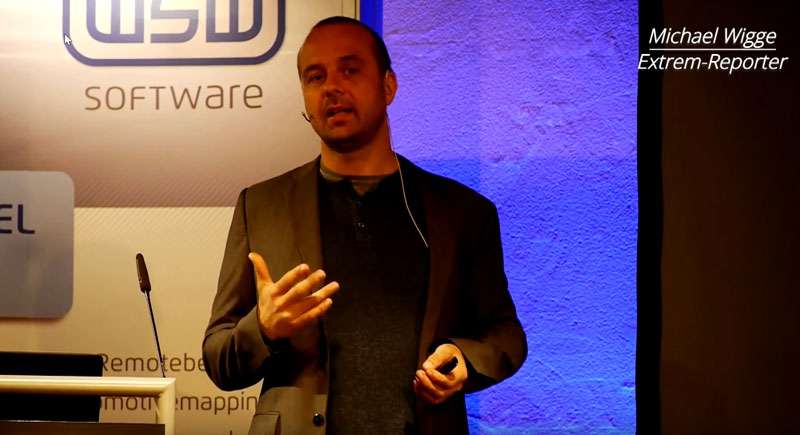Mindfulness Seminars
Awareness Training for the Workforce with Michael Wigge in 2026
Our Mindfulness Seminars & Courses for Leadership are designed to help leaders cultivate self-awareness, emotional intelligence, and resilience in today’s fast-paced business environment. Through practical mindfulness techniques, participants learn to enhance focus, reduce stress, and foster a culture of clarity and collaboration within their teams.
Our expert-led programs blend neuroscience, meditation, and leadership strategies to develop presence, decision-making, and adaptability. Whether you’re an executive, manager, or emerging leader, our courses provide actionable tools to manage pressure, improve communication, and lead with confidence.
We offer workshops, in-depth training, and customized corporate programs tailored to your organization’s needs. By integrating mindfulness into leadership, professionals can drive innovation, inspire teams, and navigate challenges with greater ease.
Join us to unlock the power of mindfulness and elevate your leadership potential—empowering yourself and your organization to thrive in a more mindful and effective way.
Table of Content:
Our Mindfulness Courses & Seminars Offer:
- One and two-day corporate workshops and training nationwide and online + 1:1 coaching
- Mindfulness & burnout prevention program with over 350 satisfied clients
- Range of motivational seminars for your workforce
- Empathetic support – Stress and burnout prevention experiences with a success rate of more than 80%
- Michael’s adventure background offers a hands-on, engaging and relatable training environment
- ICF-certified Challenge-4-Change prevention program is based on systemic and solution-orientated strategies
- Your managers will improve:
-
- Successful work/life balance
- Meditation awareness practice
- Boundary setting
- Being in the moment
- Becoming more resilient
- Having a positive inner dialogue
- Being mindful to lower stress
- Recognizing warning signals of burnout
Mindfulness Seminars & Courses – 6 Keys
1. Preventing Burnout and Stress
Our courses focus on equipping individuals with cognitive, regenerative, and structural stress management techniques. Participants learn to identify stress triggers, understand their cognitive responses, and develop strategies to regulate their stress levels effectively. These seminars teach individuals how to foster a healthy work-life balance, set boundaries, and cultivate self-care practices.
2. Mindfulness Seminars with Relaxation Techniques
Relaxation techniques form a significant part of our mindfulness seminars & courses for leadership. These techniques include breathing meditation, body meditation, and progressive muscle relaxation. Breathing meditation involves focusing on the breath, which helps calm the mind and induce a state of relaxation.
Body meditation involves bringing attention to different parts of the body, promoting relaxation and body awareness. Progressive muscle relaxation involves systematically tensing and releasing muscles to alleviate physical tension and promote deep relaxation.
Mindfulness-Based Stress Reduction (MBSR): Developed by Dr. Jon Kabat-Zinn, MBSR is an evidence-based program offered by various institutions worldwide. MBSR seminars combine mindfulness meditation, body awareness, and yoga to reduce stress and enhance well-being.
3. Mindfulness Courses with Resilience Development
Our training sessions emphasize the development of resilience as a key aspect of well-being. The seven pillars of resilience encompass various skills and qualities that individuals can cultivate to enhance their ability to cope with challenges.
These pillars typically include self-awareness, self-regulation, optimism, purpose, perseverance, support, and self-compassion. Through interactive exercises and discussions, participants learn how to strengthen these pillars and build resilience in their personal and professional lives.
4. Being in the Present Moment
At the core of mindfulness practice is the cultivation of presence and awareness in the present moment. Our mindfulness leadership courses & seminars teach participants how to detach from the incessant stream of thoughts and mental chatter, allowing them to experience the present moment fully.
This practice enables individuals to develop a clearer understanding of their thoughts and emotions, enhancing their ability to respond to situations with clarity, focus, and concentration. By being fully present, participants can also improve their priority management skills and reduce procrastination.
5. Mindfulness Breathing Meditation in Detail
Mindfulness breathing meditation is a practice that involves focusing one’s attention on the breath, bringing awareness to the present moment, and cultivating a sense of calm and clarity. To begin, find a quiet and comfortable space where you can sit or lie down in a relaxed position. Close your eyes gently and take a few deep breaths, allowing your body to settle. Now, shift your attention to your breath, noticing the sensation of the air entering and leaving your body.
As you continue the practice, maintain a non-judgmental awareness of your breath. Observe the natural rhythm of your inhales and exhales, feeling the gentle rise and fall of your abdomen or the sensation of the breath passing through your nostrils. Whenever your mind wanders, gently bring your focus back to the breath without self-criticism. Allow thoughts, sensations, and emotions to come and go, acknowledging them without getting caught up in them. Embrace a sense of acceptance and compassion towards yourself and your experiences.
By engaging in mindfulness breathing meditation regularly, you can develop a deeper connection with the present moment and cultivate a greater sense of inner peace. This practice can help reduce stress, improve concentration, and enhance self-awareness.
6. Mindfulness Body Meditation in Detail
Mindfulness body meditation is a practice that involves bringing awareness to the sensations and experiences within the body, promoting a sense of grounding and self-connection. Find a quiet and comfortable space where you can sit or lie down in a relaxed position. Gently close your eyes and bring your attention to your body. Begin by scanning your body from head to toe, observing any areas of tension, discomfort, or ease.
As you continue the practice, shift your focus to specific regions of your body, starting with the toes and working your way up to the crown of your head. Notice the sensations present in each area, such as warmth, tingling, or pressure. Allow yourself to fully experience these sensations without judgment or the need to change anything. If you encounter areas of tension or discomfort, breathe into those areas and visualize the tension releasing with each exhale.
Throughout the practice, maintain an attitude of curiosity and acceptance towards your body. Be aware of any thoughts or judgments that arise, and gently let them go, returning your attention to the sensations in your body. By cultivating this mindful awareness of the body, you can foster a deeper connection with your physical self and develop a greater sense of appreciation for the body’s wisdom and resilience.
Regular practice of mindfulness body meditation can help improve body awareness, reduce stress, and promote a sense of relaxation and well-being. It can also be a helpful tool in managing pain or discomfort and developing a healthier relationship with your body. As you become more attuned to your body’s signals, you may also find it easier to listen to its needs and make choices that support your overall well-being.
Other Leadership Mindfulness Workshop Providers
Several organizations offer mindfulness training and workshops globally. Here are a few notable providers:
1. Mindful Leadership Institute: The Mindful Leadership Institute specializes in providing mindfulness-based training programs for individuals and organizations. They offer seminars on stress management, resilience building, and mindful leadership skills.
2. Center for Mindfulness in Medicine, Health Care, and Society: Based at the University of Massachusetts Medical School, the Center for Mindfulness offers seminars and workshops for healthcare professionals and the general public. Their programs focus on stress reduction, mindfulness-based interventions, and mindfulness-based cognitive therapy.



Mindfulness Seminars & Courses – Interview
How Important Is Personal Development in Your Mindfulness Seminars?
Michael: I got into different development aspects because of my interest at a very early stage. How to grow personally and professionally was one of my interests already at the early age, way before my career as a mindfulness coach started. I deliver these experiences in our programs to the workforce with an actual real-life connection to my own experience. Feel free to watch my TEDx Talk or read my motivational keynote speaker blog on these experiences to help you better understand my background.
What Are the Personal Aspects You’ve Been Working On?
Michael: I faced some personal obstacles. I am glad I could work on all of them successfully. Here is my list of personal & professional development aspects that I dealt with:
- Overcoming fear of speaking to crowds
- Practicing mediation
- Becoming resilient
- Living a mindful life
- Improving my health and emotional stress management
- Learning lessons from burnout in my first career as a television anchor
- Learning to set boundaries for myself and others
- Becoming a positive thinker
- Developing a great relationship with myself
There might be many more aspects, but this work has changed and shaped my life. I currently see my lifestyle as inspirational, which is the fundamental groundwork to offer mindfulness seminars & leadership courses.
How Did this Influence Your Mindfulness Seminars?
Michael: In my first career as a travel influencer, I often had to lead teams to produce my travel docu-series for the international TV market. My adventures required a group of people who would support me in research, video editing, camera work, and many aspects of TV production. These 15 years taught me a lot about successful leadership, how to solve conflicts, overcome fear, lead with appreciation, motivate team members, become a better listener to my team, and be more mindful of preventing stress and burnout. Nowadays, I use these learning experiences in my Challenge-4-Change programs.
My former career also confronted me with the learning aspect of embracing change. And I had to learn a lot about having excellent change management skills because, for instance, I changed my marketing entirely from analog to digital marketing. Being a successful TV reporter and book author in Europe and the US put me in the luxury position of being part of an exclusive TV circuit for a long time.
What Benefits Do People Get in the Mindfulness Seminars?
Michael: My work is certified, systemic, and solution-oriented. Most of my corporate clients embrace the necessary change they strive for after my one or two-day mindfulness courses. After each seminar session, I motivate my clients with specific burnout prevention challenges, the so-called fieldwork.
After the training program, they get a personal challenge to face their stress-related issue. A burned-out manager must set up a 30-day work/life challenge to integrate the learning results. This kind of challenge can be tricky, but this is where the change happens – outside our comfort zone.
During “homework,” my clients can call me for support and send additional emails for advice. My programs are highly effective, with an 85% success rate of satisfied clients.
Can Anyone Become a Positive Thinker?
Michael: I grew up in Europe in a small town in Germany in the 70s and 80s. I experienced a family life and social surroundings dealing with fear and pessimism. I grew up with a similar mindset because this way of thinking seemed to be my status quo.
But my travels to about 90 countries have taught me all our different options. If you look out of the window, you see a cloudy day. How do I perceive it? And do I need to judge this current weather anyway? I used to think, ‘How annoying is this weather? It’s always cloudy.‘
Nowadays, I’d rather think ‘one of the cloudy days in between sunny ones‘. First, I no longer judge the weather as ‘annoying‘. Neither do I negatively generalize that it’s ‘always cloudy’ because it’s an exaggeration and not a fact. And I don’t give up my responsibility for how I feel related to an external circumstance. This mindset is the essential groundwork to avoid any stress symptoms in the first place.


‘With the right strategy, you can achieve any goal’ – MICHAEL WIGGE
Your Final Notes on Emotions and Mindfulness Leadership Seminars?
Michael (laughs out loud): I feel responsible for my feelings nowadays, and I usually observe situations and rarely judge them. This non-judgemental mindset makes such a huge difference in my mood because I recognize that only I decide to be happy or unhappy. Be inspirational to be a great stress management coach!
Feel free to spread the word to anyone seeking help and preventing burnout. Our online education center is happy to answer any questions about mindfulness-based science, stress reduction, continuing health education, conference workshops, and health awareness retreats.
Warmest Regards,
Michael
Further Links: Stress Management Seminars, Time Management Seminars, Top Speaker in Germany; Soft Skills Training
FAQ – Can I Book Your Courses as Online-Formats?
Yes, 60% of Our training offers are held online.
FAQ – Will One Course Help Me already?
It’s a great start for a healthy lifestyle. We recommend to continue work afterwards.
FAQ – What Can I Do at Home to Become more Mindful?
We recommend breathing meditation, physical workout observing reactive behavior like phone and social media usage.
Michael’s Motivational Tour 2026
March 2026
Boulder, USA
May 2026
Flagstaff, USA
June 2026
Asheville, USA
September 2026
Freiburg im Breisgau, Germany
October 2026
Innsbruck, Austria





